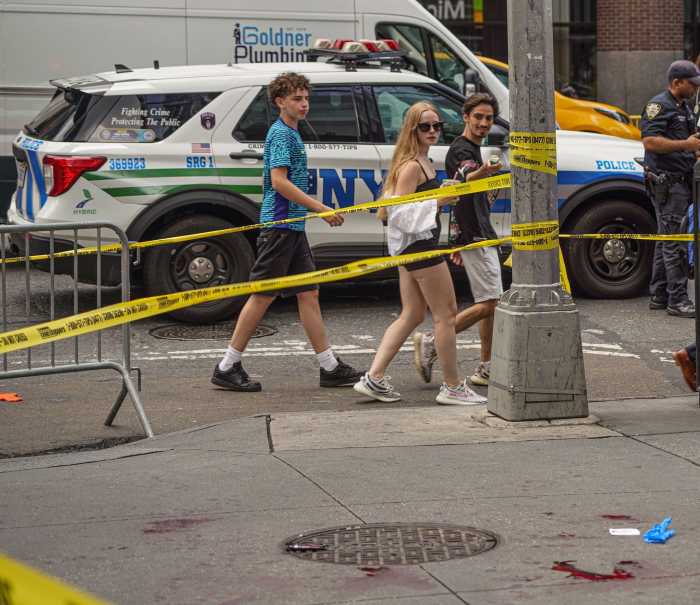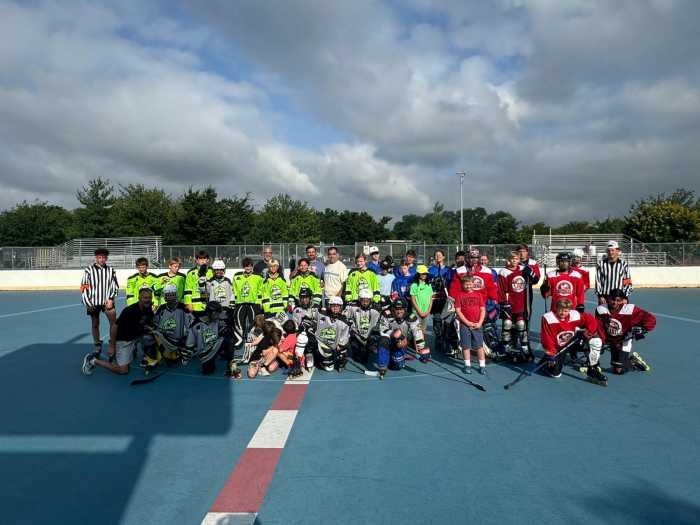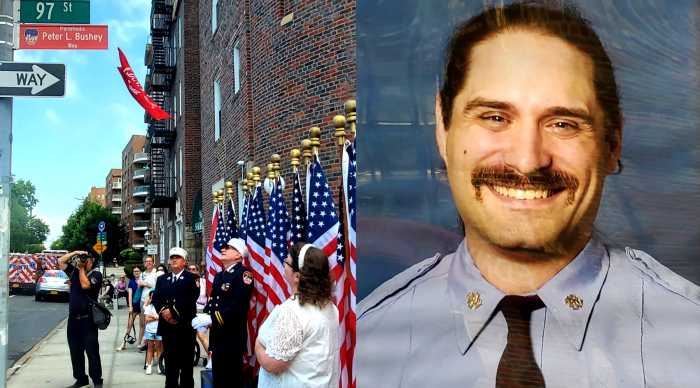
The life of a single mother of two developmentally delayed children is replete with allaying tantrums over who gets to watch “PJ Masks” on her smartphone, taking the kids to multiple therapy appointments and constantly struggling with the New York City Public Housing Authority over basic human needs.
Lisa Vasquez, 24, is a resident of NYCHA’s South Beach Houses in Staten Island, raising two children — Jasiel, 3 and Jazzy, 6 — on Supplemental Security Income. She also is part of a class-action lawsuit brought against NYCHA by the Legal Aid Society in April, which demands rent refunds for tenants who experienced several heat outages this past winter, the damages for which they say could range from $5 million to $20 million,
Heat in Vasquez’s two-bedroom apartment was intermittent since 2016, and was completely shut off in February 2018, she said. It hasn’t come back on since, she added.
“My children would wear their heavy winter coats and we would have three to four blankets and wrap up like we were living in Antarctica,” Vasquez said, having sent off her oldest, Jazzy, to a nearby park to keep the 6-year-old from listening to her mother worry out loud on a Wednesday morning.

“How do you explain to your children that we don’t have heat? There were times we had to cancel a whole day worth of therapies to stay under the blankets; I could not give them a bath and get them dressed to get them back out in the cold,” she added.
Currently, lawyers with the Legal Aid Society are seeking an order from the State Supreme Court in Manhattan to reinstate the heat until the end of the heat season, or May 31, according to Lucy Newman, the Legal Aid’s Civil Law Reform Unit staff attorney.
During the winter, Vasquez’s family dealt with the cold by alternating between a space heater in the living room and the oven in the kitchen, which stayed on almost every day for a month before Vasquez’s gas was shut off, she said. During that time, the carbon monoxide detector remained without batteries, despite several complaints she lodged with NYCHA, Vasquez added.
From March 9 until May 1, she said that her family lived without gas and she could not cook for her children. On her meager income, Vasquez said there were several instances when she had to resort to food pantries and Pediasure for meals. While NYCHA provided her a hot plate, it hardly ever worked, she added.
NYCHA officials admitted that 323,098 residents had no access to heat or hot water between Oct. 1, 2017, and Jan. 22, 2018, according to the lawsuit. While NYCHA spokeswoman Jasmine Blake told amNewYork in April that rent refunds would hinder the agency’s ability to make repairs and restore heat services, Legal Aid Society’s Newman stressed that since NYCHA violated the law, they will have to accept the consequences — in this case, rent abatement.

Vasquez has lodged complaints with NYCHA regarding peeling paint, black mold, rusted radiators, leaking ceilings and pipes, and heat and hot water, she said while sweeping paint chips off the floor, a chore she said has increasingly become an hourly one.
On a tour of her apartment, Vasquez pulled out her phone and showed pictures of a recent incident where NYCHA officials came to remove radiators from her apartment.
“Those radiators had lead in them, lead paint which was peeling,” she said, adding that a contractor appointed by NYCHA had come for a lead inspection in early April and informed her of the presence of lead in the unit.
Blake confirmed in an emailed statement that the agency had detected lead in Vasquez’s apartment. The radiators were taken out to be repainted and should be installed by May 14, she said. Blake said that other “paint deficiencies” were corrected in January 2018 for this unit, adding that lead-based paint is not harmful if not “chipped, peeling or flaking.”
In November 2017, a Department of Investigation report revealed that the housing authority had stopped conducting lead inspections in NYCHA apartments since 2013. In a hearing on April 17, NYCHA lawyers said the agency had resumed inspections in October 2017. Judge Carol Edmead then ordered the public agency to go back and inspect all apartments it had overlooked that has a child aged 8 and younger, and all complaints related to lead NYCHA has marked resolved in the past three years within 90 days.
When Vasquez voiced health concerns relating to lead during a routine checkup for her children, the doctor conducted a capillary test, which includes a finger prick, she said. Lead was “detected” in [the children’s] systems, and the doctor asked Vasquez to get more blood tests, she said.
“With all the heat issues and the medical issues, I feel like I’m hanging on by a thin thread,” Vasquez said with tears in her eyes. “Every day is a war, and I feel like I’m beating the air and nobody is listening.”
Vasquez said her living situation is hampering her ability to be a good mother to her kids.
Covered under a blanket her 3-year-old flung on her in an elaborate peek-a-boo effort, Vasquez’s voice filtered through, muffled and choked up.
“This is what I should be doing with my kids, playing with them, doing silly stuff like this,” she said. “That bonding experience has been robbed from me. I’ve been in survival mode all these years.”



































